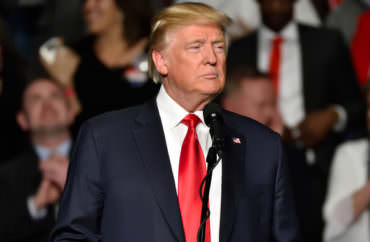
Editor’s Note: This is the first in a series of articles reporting on the American Studies Association’s annual meeting, an academic conference held Nov. 9-12 in Chicago.
CHICAGO – The popular #NotMyPresident campaign allows liberals to excuse themselves of any responsibility for their role in the election of Donald Trump, a Grand Valley State University professor suggested at a recent academic conference.
Jae Basiliere, assistant professor of women, gender and Sexuality Studies, said the campaign lets liberals blame others — mostly notably rural America — without looking inward.
While Basiliere emphasized that she believes sexism and racism played a huge role in electing Trump, she said liberals as a whole have seemed to have brushed aside rural America and not taken seriously the need to hone their talking points and engage in constructive dialogue.
“To make a world where Trump is really not our president, we need to train our students to make nuanced arguments, teach them to communicate productively and civilly with people who hold competing ideologies and encourage them to work toward a world where racism, sexism and xenophobia do not hold enough power to manipulate a presidential election,” Basiliere said.
Speaking as part of a panel titled “WTF Rural America? Geography. Culpability. Trump.,” Basiliere pushed back against the political narrative that poor, conservative, uneducated rural voters alone are responsible for Trump’s rise to power.
“The issue here is the ease in which ‘Not My President’ allows scared liberals to disavow any cultural responsibility for the conditions that made Trump’s platform so appealing,” Basiliere said at the American Studies Association’s annual conference, recently held in Chicago and themed around “pedagogies of dissent.”
The scholar said the “Not My President” campaign has garnered acclaim because it is “an escape into a fantasy world where Donald Trump is really not our president.”
“I don’t like it,” Basiliere said. “I can work to resist it everyday, but Donald Trump is absolutely my president.”
“As a white, liberal, excessively educated voter, to say anything but is to disavow my role in creating a world in which a platform based on exclusion had such a broad appeal,” added the professor, speaking in a venue coincidentally located near Chicago’s Trump Tower.
Basiliere’s comments about the anti-Trump campaign came during a presentation that provided a broad look at how commentators have analysed rural voters during and after last year’s presidential election and framed a rural-urban divide.
Basiliere argued media coverage has often summed up Trump’s electoral success as “a contrast between his conservative, uneducated rural base and his liberal, urban, educated critics,” drawing attention to headlines like “Why Rural America Voted for Trump” and a media graphic that broke down how counties with either a Cracker Barrel or Whole Foods voted in the 2016 presidential election.
But Basiliere asserted the rural vote alone cannot determine the outcome of a presidential election. She said media coverage that depicts this contrast risks stereotyping rural Americans as backward and uneducated and “serves to absolve urban liberal voters of any responsibility for Trump’s presidency.”
“Rural America is not the problem here. The problem is an environment that makes racism, xenophobia and sexism palatable to more than 50 percent of white voters. This is really why I find ‘Not My President’ so objectionable,” the professor said.
Basiliere continued: “To disavow responsibility for Donald Trump’s presidency is to disavow the reality that racism and sexism remain so deeply embedded in our cultural imagination that they swing presidential elections.”
In the classroom, Basiliere warned against writing off conservative students because of their political beliefs. She said if such students sense hostility from their professors, they won’t meet the instructors halfway. Basiliere also said professors should allow space for students frustrated and scared by the current political moment.
With the rise of social media and constant access to information, Basiliere said students are especially prone to be influenced by their social circles and unable to put aside those biases in the classroom. She said if professors really want to get rid of Trump, they must help students get to a point where they interact with the other side without simply ostracizing them.
MORE: Johns Hopkins prof — Trump won election by ‘invoking the history of white supremacy’
IMAGE: Evan El-Amin/Shutterstock
Like The College Fix on Facebook / Follow us on Twitter

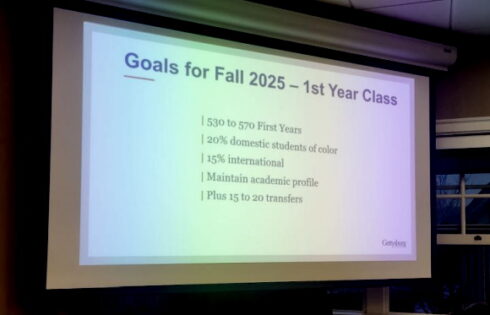
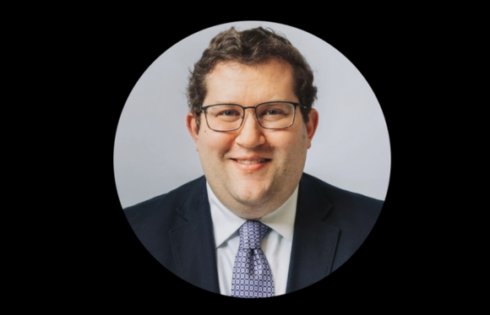
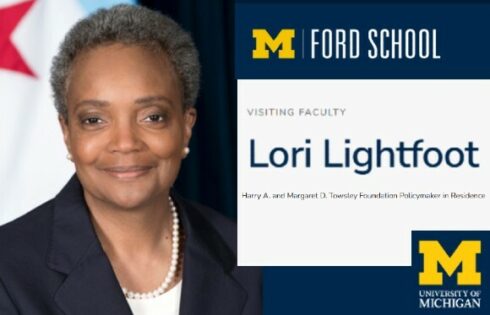
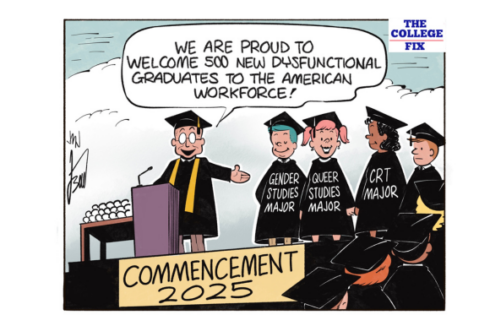
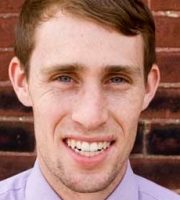
Please join the conversation about our stories on Facebook, Twitter, Instagram, Reddit, MeWe, Rumble, Gab, Minds and Gettr.